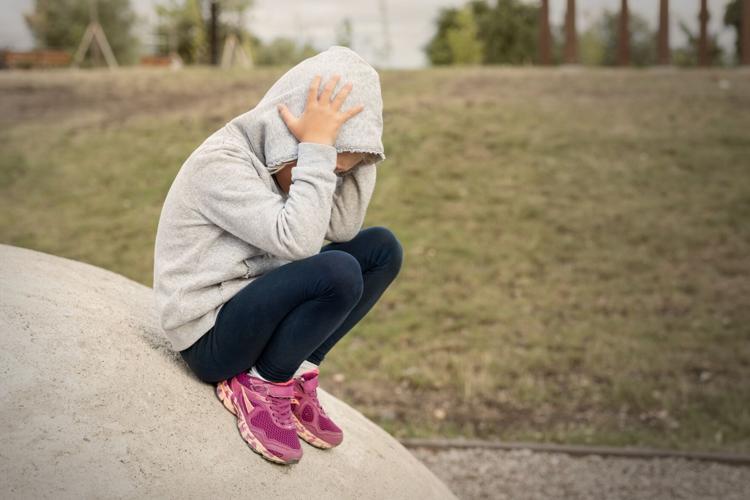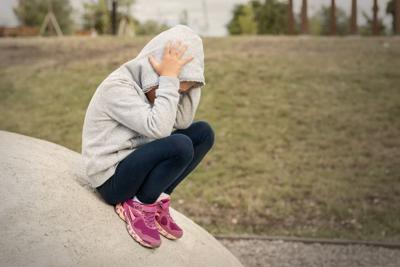Progress to improve child and youth well-being in Canada is lagging compared to other high-income countries, according to a new UNICEF report.
It ranks Canada closer to the bottom than the top of the list when it comes to adolescent suicide rates, child mortality and competence in social skills.
“All orders of government in Canada have an opportunity to concretely address the downward trends we see in this Report Card — and frankly, an obligation to,” Sevaun Palvetzian, president and CEO of UNICEF Canada, said in a statement to the Star.
UNICEF’s report card placed Canada in 19th place out of 36 countries, all of which were members of the European Union and/or Organization for Economic Co-operation and Development. “Canada is barely getting a passing grade,” said Palvetzian.
The report ranks the countries by how they’re doing in three dimensions of child-well being: mental well-being, physical health and skills. It breaks those dimensions down further by comparing rates of life satisfaction, adolescent suicide, academic proficiency, social skills, child mortality and the number of overweight children.
Rankings were determined based on data gathered from sources including the OECD’s 2022 Programme for International Student Assessment and the WHO’s Mortality Database. A total of 43 countries were included, but lack of data led to exclusions in some cases.
The report says the rate of adolescent suicide in Canada fell to 8.4 from 10.1 per 100,000 since 2018, the most significant improvement by Canada across the key indicators of child well-being identified by UNICEF in the report. Despite that, it says suicide remains a leading cause of death among adolescents, and Canada still has a higher rate than other most other countries, landing it in 33rd place out of 42.
UNICEF Canada youth advocate Matin Moradkhan told the Star she believes mental health care “needs to be accessible and affordable for all children when they need it the most,” and that there should be more emphasis on mental health education in schools as a preventative measure.
“If there is more education for children, they can learn about the signs and ask for help much earlier on.”
When it comes to social skills and children’s ability to make friends, Canada ranked 28th out of 41 countries, with little change observed since 2018. Child mortality in Canada has improved in the same time frame, but not as much as in other parts of the world, so Canada ranked 25th of 43.
Canada ranked sixth for academic skills — the only indicator for which it makes the top 10 — and 13th for overall life satisfaction, which saw a three-percentage-point decrease since 2018.Â
“Canada, despite being one of the wealthiest countries, continues to fall short when it comes to meeting children’s basic mental health and social well-being needs,” Moradkhan said.
The report card highlights bullying as a major contributor to low life satisfaction, with 22 per cent of Canadian children reporting being bullied frequently.Â
UNICEF says childhoods are being altered by COVID-19, climate change, global conflict, digital technology and demographic changes — what it calls a “polycrisis.”
Even though the pandemic began more than five years ago, “its impact and the emotions, the isolation and the anxiety that it caused is something that will take time to sort through, especially for the younger children,” said Moradkhan
She said the polycrisis has caused “increased anxiety for young people about their future” because of all the uncertainty.
To improve child and youth well-being, UNICEF Canada calls on all levels of government to strengthen income benefits, parental leave, school food programs and affordable child care.
“When families can count on financial support and access to services, it reduces stress at home, helps parents balance work and caregiving, and gives children the environment and support needed for a healthy childhood,” said Palvetzian.
She emphasized that these policies are also good for the economy. According to the OECD, the gap in child well-being — the estimated monetary value of lost employment, lost earnings among the employed and lost health — is of its GDP every year.
UNICEF Canada is also calling for the establishment of a national commissioner to ensure children’s needs stay in focus in every government decision; the inclusion of younger children in the federal Youth Mental Health Fund; and the implementation of Jordan’s Principle, to ensure equitable access to government services and support for First Nations children.
Emily Gruenwoldt, president and CEO of Children’s Healthcare Canada, said her organization recognizes health-care systems serving children and youth are “undersized to meet the needs of a growing and increasingly medically complex population.” But as a result, “there are measurable human and financial costs accruing that must be a focus of the leaders of this country.
“Investing in our children is smart policy,” she said, and “protects our future workforce, secures the health of future caretakers and reduces health-care costs overall.”



































To join the conversation set a first and last name in your user profile.
Sign in or register for free to join the Conversation